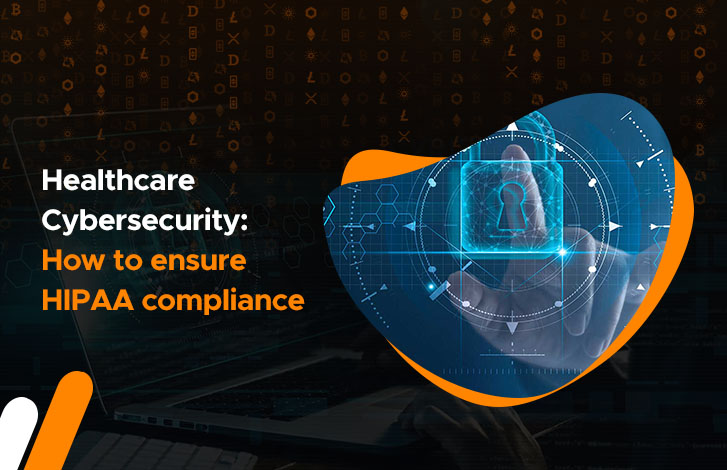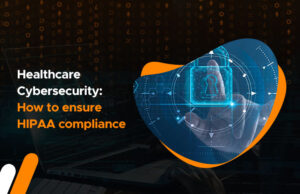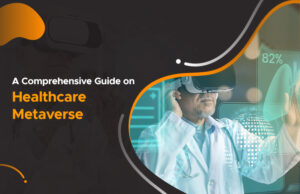In the world of healthcare, privacy is of the utmost importance. Patient records can be confidential and cannot be accessed without the patient’s consent. So to keep patient trust, providers need to ensure that data is not breached. HIPAA cybersecurity laws apply to healthcare organizations that gather, store, and use patient health information. This guarantees that patients’ rights are kept and protected when they receive care from different healthcare providers. If a data breach occurs from a HIPAA violation, there might be a minimum penalty of $50,000 and reputational damage, plus financial costs. Staying on top of cybersecurity is essential for any healthcare organization because there are over 2.5 million EMR accesses each day per organization.
Importance of Cybersecurity in Healthcare
Cyberattacks in the healthcare space are becoming much more common now. Network security breaches create havoc amongst organizations, exposing sensitive patient data and making it vulnerable.
EHRs store a large amount of data. They can be hacked and encrypted by hackers asking for ransom in exchange for the key. This data can be exposed to those with malicious intent and even sold worldwide. HIPAA is a federal legislation that prevents the disclosure of sensitive health information without the patient’s knowledge or agreement and is a cornerstone of the U.S. Department of Health and Human Services (HHS) policy. A healthcare organization must protect the personal information of its patients and clients to continue adhering to the rules outlined by the Health Insurance Portability and Accountability Act (HIPAA).
To ensure security, it becomes vital for healthcare organizations to level up their cybersecurity systems. HIPAA cybersecurity specifically covers healthcare entities that use technology to provide care. It entails steps organizations must take to guarantee that the right security measures are in place to reduce the risks to patient data. You must encrypt the shared data to ensure rigorous compliance and implement additional cybersecurity precautions. It is the obligation of the organization to continuously assess user behavior and network performance to be informed of any changes in user behavior patterns. Healthcare organizations worldwide are upping their cybersecurity game by raising their IT budgets in response to this growing danger.
Measures to Ensure HIPAA Compliance with Cybersecurity
Protecting the security and privacy of sensitive health information is more crucial than ever in a world where cyber threats are on the rise. Medical practices that take proactive measures to maintain HIPAA compliance and maximize data security can lower their cyber risk and avoid the expensive operational, financial, and reputational damage from data breaches. Some measures organizations can take include:
Staff Training
Human error is the number one cause of data breaches. To maintain data security and guarantee compliance, training all medical staff interacting with patient data on best practices is crucial. Employees should know the serious financial, reputational, and regulatory repercussions of a healthcare data breach. Including the cyber threats that target healthcare organizations. These organizations should be taught how to recognize, report, and handle attacks. The importance of cybersecurity best practices, including having strong passwords, and not leaving mobile devices unattended. As well as never using consumer-grade messaging apps that lack security, and avoiding using unprotected Wi-Fi networks, should be covered in detail during the training.
Multifactor authentication
By using two-factor authentication to access resources like an online account or virtual private network, multifactor authentication minimizes unauthorized access to sensitive data like ePHI. MFA normally functions by requesting the user to provide their username and password and an additional identifying factor, such as an OTP or biometric like a fingerprint.
Software updates
Software updates are essential to maintaining HIPAA compliance and lowering security vulnerabilities. They help prevent security risks like malware. Medical practices should routinely check for software and antivirus updates and immediately install any necessary security updates. Medical practices that take proactive measures to maintain HIPAA compliance and maximize data security can lower their cyber risk and avoid the expensive operational, financial, and reputational damage from data breaches.
Using HIPAA-compliant technology
Medical practices should employ mobile messaging and collaboration systems to protect this data to reduce cyber threats to electronically protected health information (ePHI). Medical practices should use enterprise-grade mobile messaging platforms designed with security and compliance measures that effectively lock down digital communications, such as end-to-end encryption and robust administrative controls.
These secure mobile messaging apps encrypt data, offering constant protection for data in transit and at rest. They keep messages safe from prying eyes and guarding them.
Protect patient data
Hostile data is only accessible to authorized employees and can become easily accessible if not maintained appropriately. Healthcare systems must safeguard patient data in storage and during transit to better protect this information. Security is improved by encrypting important files before putting them on a device or even just the storage device itself.
Protect IoMT devices
The Internet of Medical Things threatens many organizations as they are more challenging to protect and monitor than traditional tools. Adding passwords to your network or changing existing passwords are two simple ways to safeguard IoMT devices quickly. Aside from addressing network vulnerabilities, businesses can also implement network segmentation. This would stop unauthorized agents from accessing data everywhere on the system or detection controls to monitor network traffic better.
Some other steps to consider
Healthcare organizations can put the following procedures into practice to guarantee cybersecurity in the industry and stop cyber-attacks:
- Review the current risk analysis strategy and look for gaps and improvement areas.
- Verify that methods to identify vulnerabilities are considered when evaluating risk management plans. Use of distinct identities, secure passwords, permissions based on roles, timeouts, and screen locks are all required.
- A recent risk analysis should be used to update HIPAA and other cyber policies and procedures compared to legal and regulatory requirements.
- Make security response strategies that adhere to HIPAA regulations and other relevant legislation so your company can handle a potential data breach.
- Create backups for your data. Ensuring the backed-up data is protected and impossible to be destroyed.
Conclusion
Moving without a security strategy would not be wise in this date and age, where cyber-attacks are taking over healthcare. Thus, creating a plan that works for your organization is important. When patients have complete trust in the protection of their data, your practice will ultimately flourish.







